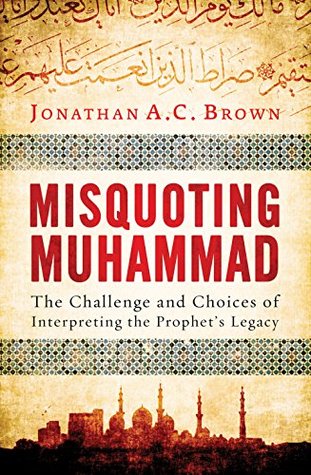More on this book
Community
Kindle Notes & Highlights
Read between
October 31, 2018 - April 24, 2019
Responding to the frequent calls today for a ‘Muslim Martin Luther,’ medieval ulama would suggest that much of the violence and extremism found in the Muslim world results precisely from unlearned Muslims deciding to break with tradition and approach their religion Luther-like ‘by scripture alone.’
Imalah and 2 other people liked this
· Flag
Hamza
Whether the subject is Iran, Egypt, Turkey or Tunisia, the narrative of Islam in the Western media and blogosphere is almost always the same. Tradition is gradually giving way to modernity. Black veils and prohibition mark the former. Flowing hair, Western dress and a good drink mark the latter.
Sometimes violations of this rule are called out, and ulama have at times dismissed each other’s interpretive arguments as ‘affected’ (fihi takalluf) or ‘arbitrary’ (fihi ta‘assuf) when they deviate too far from the evident meaning or do so without cause.
Sunni legal theorists since the eleventh century have phrased the tension between the specificity or generality of Qur’anic verses as the tension between the ‘Generality of the Language’ (‘umum al-lafz) and the ‘Specificity of the Reason for Revelation’ (khusus al-sabab).
Furthermore, Nawawi and others remind us that the ‘weeping’ forbidden here must be understood as loud, histrionic wailing, not normal tears of sadness.54 Such natural expressions of grief must be allowed, notes Nawawi, because authentic Hadiths tell of the Prophet shedding tears at the death of his own infant son, Ibrahim, and also describe his close friend and successor Abu Bakr breaking into tears upon seeing Muhammad’s body. Indeed, tears for the dead were ‘a mercy,’ the Prophet had explained.
heinous imperfection far below Him.56 At the root of the Sunni rejection of reading a concealed truth behind the Qur’an’s depictions of the Afterlife was the looming terror of the Ismaili Shiites and their ‘Inner’ (Batini) reading of Islam’s scriptures. Their sectarian and military threat to the Sunni caliphate was ever present in the many writings that Hujjat Al-Islam penned as a star professor in the vaulted halls of the Baghdad and Nishapur Nizamiyya madrasas, where he taught during his illustrious career. His own patron, the vizier Nizam Al-Mulk, fell before the dagger of an Ismaili
...more
Indulging in falsehoods about the past does similar damage to the integrity of history as a genre.
Galileo was echoing Augustine and Catholic orthodoxy when he asserted that undeniable, empirical observation could not disprove the Bible, it only meant that Christians had been misinterpreting some of its details.
I heard of a profound experience that one student who had studied there in the early 1900s had recorded in his memoirs.41 The student had strayed from the madrasa curriculum and submerged himself in books of philosophy and the modernist arguments of Hadith skeptics. Sitting in class at Deoband, the student’s mind was flooded with the most profound doubts about the reliability of Hadiths. He even questioned Muhammad’s prophethood. Instead of being open to possible explanations for reports like the Hadith of the Fly or the Devil Farting, the student felt he was falling into an abyss of
...more


